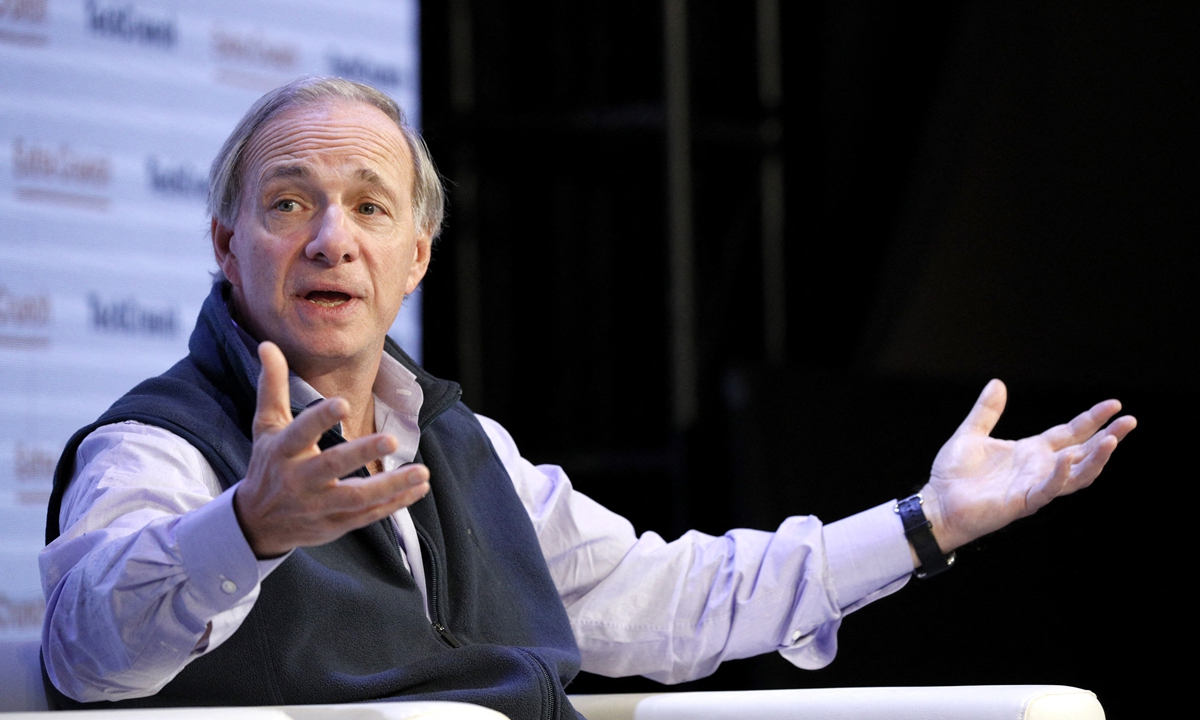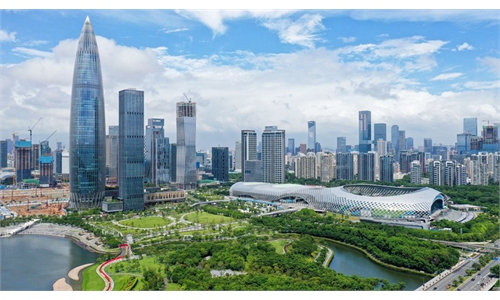
Ray Dalio. Photo: AFP
"Common prosperity is a good thing," Ray Dalio, founder of Bridgewater Associates, the world's biggest hedge fund, said in a video appearance during a conference on Monday."It's another way of saying prosperity for most people." He continued, "The US, through its own system, needs more common prosperity, and a lot of other countries do." Bloomberg's report on this news was entitled, "Billionaire Ray Dalio Says U.S. Needs a Dose of China's Common Prosperity."
China's "common prosperity" refers to affluence shared by everyone both in material and cultural terms. Since 2012, the country has gradually put "common prosperity" in a more prominent position.
Dalio's lines reflected a strong voice in the US - calling for a solution to inequality, especially in regards to wealth. The wealth gap in the US has been widening. According to the latest Federal Reserve release on the distribution of wealth in the US, as of the second quarter of 2021, the total wealth of the top 1 percent was higher than the total of the middle 60 percent. This was the first time for such a gap since the Federal Reserve began tracking this data in 1989. Despite the US being the most powerful country in the world, Washington has made little progress in addressing wealth inequality.
Dalio is obviously among the top 1 percent of the rich, and he is thinking about social equality from that perspective. The logic is simple: Since the basic structure of society is in the form of a pyramid, constant concentration of wealth at the top loosens and shakes the foundation which is constituted by the lower and middle classes. This will trigger more instability in US society and perpetuate the unsustainable lifestyles of the rich. Shelving the growing inequality between the rich and poor could destroy the foundation of the US and even result in turmoil for the nation.
The disparity between the rich and poor in the US is rooted in the country's social system. Some people mistakenly believe rich Americans are keen on charity, thus helping to resolve social inequality. But in fact, donations from the rich are not for "charity" as generally understood, but mainly go to nonprofit organizations that benefit those rich Americans. The main purpose is to avoid taxes, and to use various nonprofit organizations to safeguard the ruling by US elites. This does not improve the living conditions of the disadvantaged groups such as the poor and disabled. Some nonprofit organizations even turn untaxed donations into dark money.
Dalio has drawn some criticism in the US for his remarks on China. In the report about Dalio's words on "common prosperity," Bloomberg added, "For almost 40 years, Dalio has spoken of his fascination with China, and has been a vocal - and at times controversial - booster of the nation and its government."
US society, including the elites, is highly divided on China. As the serious inequality leads to division and confrontation, some politicians are eager to shift the blame to China in a bid to defuse the dissatisfactory sentiment in their society. Even more absurd, an address delivered by US President Joe Biden on the anniversary of the January 6 Capitol riot also talked about China.
Dalio is a rare visionary in the US. He knows that the US' problems are not rooted in China, but in the US itself - the root cause is its dysfunctional political and economic systems. It is admirable that Dalio realizes that China's efforts to promote "common prosperity" could be a helpful lesson for the US.
However, the US is not able to solve the gap between the rich and poor and achieve "common prosperity." US administrative authorities have limited power in wealth distribution. Taxes play an important role in reforming the distribution system. But it is the US Congress, not the US president, that regulates taxes. Against the backdrop of partisan struggles, it is almost impossible to solve the rich-poor gap. Any measures that tend to make an improvement pushed forward by Democrats could hardly be supported by the Republicans.
It will be difficult to change the gap between the rich and poor if the system remains unchanged. If big changes cannot be made, a small change can only slightly help bridge the gap. For example, the US could improve the management of donations, preventing them from being used by certain forces. But the effect will just be limited.
The author is a research fellow at the Chinese Academy of Social Sciences. opinion@globaltimes.com.cn

